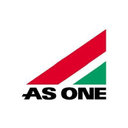
Delta Air Lines Inc
NYSE:DAL

Intrinsic Value
The intrinsic value of one
 DAL
stock under the Base Case scenario is
hidden
USD.
Compared to the current market price of 40.85 USD,
Delta Air Lines Inc
is
hidden
.
DAL
stock under the Base Case scenario is
hidden
USD.
Compared to the current market price of 40.85 USD,
Delta Air Lines Inc
is
hidden
.
The Intrinsic Value is calculated as the average of DCF and Relative values:
Valuation History
Delta Air Lines Inc

Fundamental Analysis

High labor costs stemming from pilot contract negotiations could compress margins, especially if union demands escalate and limit Delta’s cost control strategies relative to lower-cost rivals.
Delta’s top-tier operational metrics and strong brand equity help the airline secure premium fares and attract high-value flyers, sustaining revenue growth even in competitive markets.

Revenue & Expenses Breakdown
Delta Air Lines Inc

Balance Sheet Decomposition
Delta Air Lines Inc

| Current Assets | 11.2B |
| Cash & Short-Term Investments | 3.7B |
| Receivables | 3.7B |
| Other Current Assets | 3.9B |
| Non-Current Assets | 66.1B |
| Long-Term Investments | 2.8B |
| PP&E | 44.7B |
| Intangibles | 15.7B |
| Other Non-Current Assets | 2.8B |
Free Cash Flow Analysis
Delta Air Lines Inc

| USD | |
| Free Cash Flow | USD |
Earnings Waterfall
Delta Air Lines Inc

|
Revenue
|
61.9B
USD
|
|
Cost of Revenue
|
-30.6B
USD
|
|
Gross Profit
|
31.4B
USD
|
|
Operating Expenses
|
-25.4B
USD
|
|
Operating Income
|
6B
USD
|
|
Other Expenses
|
-2.3B
USD
|
|
Net Income
|
3.7B
USD
|
DAL Profitability Score
Profitability Due Diligence

Delta Air Lines Inc's profitability score is hidden . The higher the profitability score, the more profitable the company is.

Score
Delta Air Lines Inc's profitability score is hidden . The higher the profitability score, the more profitable the company is.
DAL Solvency Score
Solvency Due Diligence

Delta Air Lines Inc's solvency score is hidden . The higher the solvency score, the more solvent the company is.

Score
Delta Air Lines Inc's solvency score is hidden . The higher the solvency score, the more solvent the company is.
Wall St
Price Targets
DAL Price Targets Summary
Delta Air Lines Inc

According to Wall Street analysts, the average 1-year price target for
 DAL
is 78.46 USD
with a low forecast of 62.75 USD and a high forecast of 105 USD.
DAL
is 78.46 USD
with a low forecast of 62.75 USD and a high forecast of 105 USD.
Dividends
Current shareholder yield for  DAL is
hidden
.
DAL is
hidden
.
Shareholder yield represents the total return a company provides to its shareholders, calculated as the sum of dividend yield, buyback yield, and debt paydown yield. What is shareholder yield?
The intrinsic value of one
 DAL
stock under the Base Case scenario is
hidden
USD.
DAL
stock under the Base Case scenario is
hidden
USD.
Compared to the current market price of 40.85 USD,
 Delta Air Lines Inc
is
hidden
.
Delta Air Lines Inc
is
hidden
.




























































 You don't have any saved screeners yet
You don't have any saved screeners yet